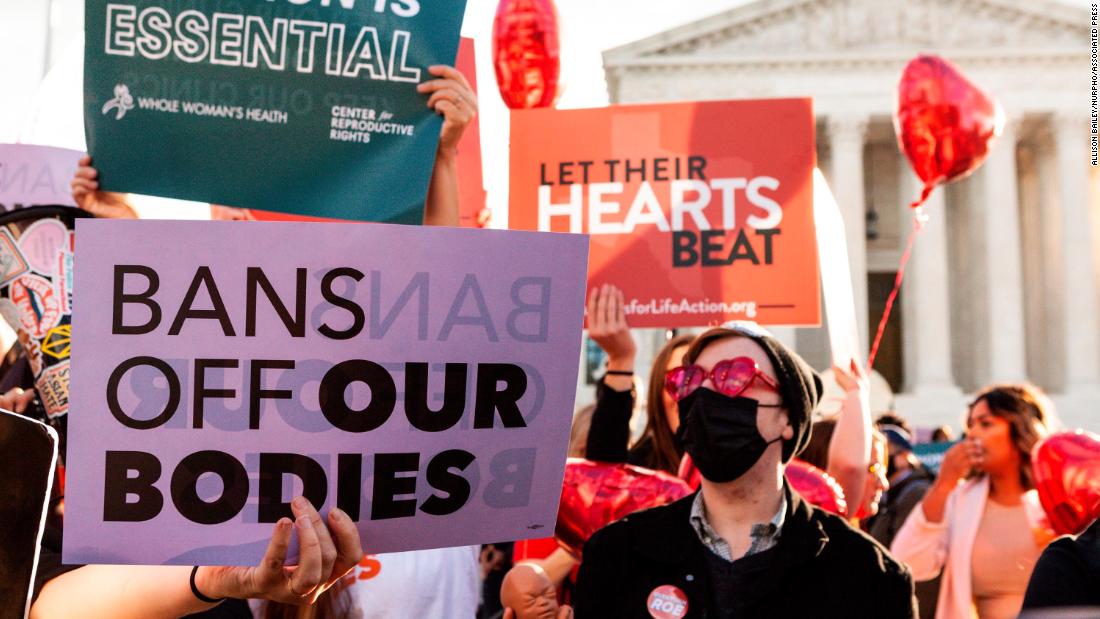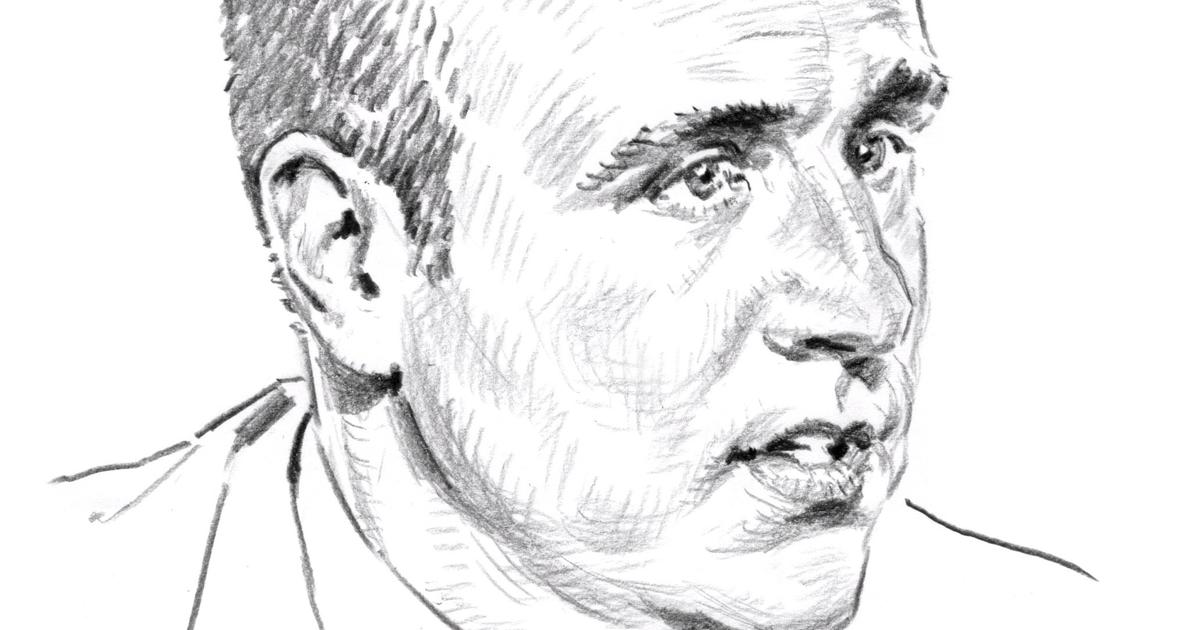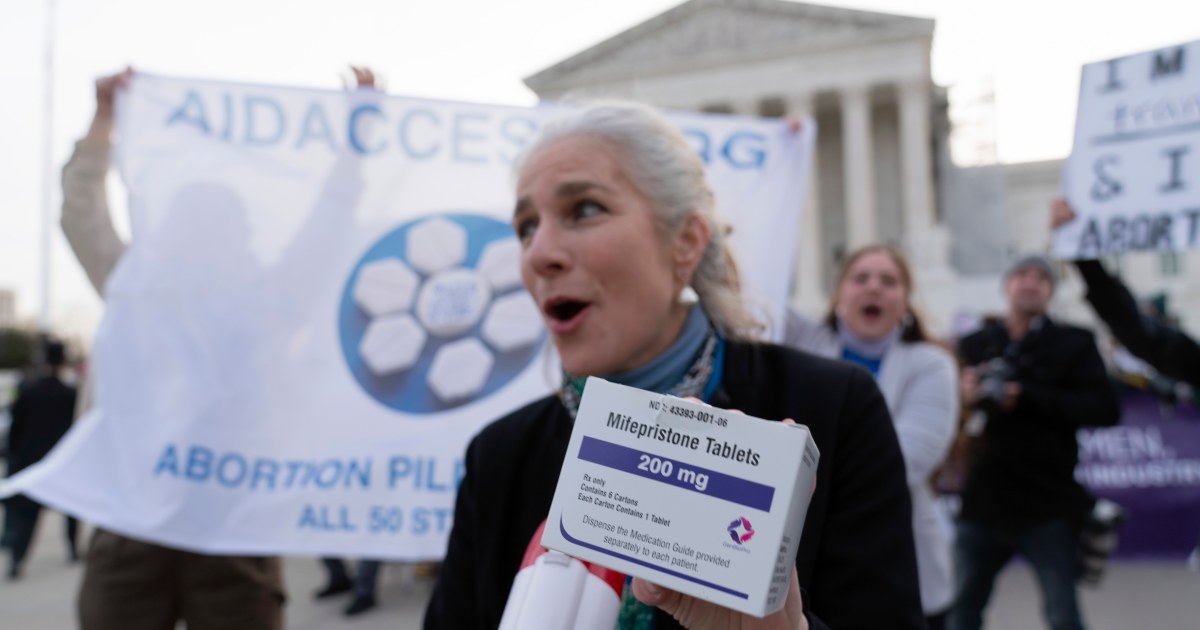Concern about Texas anti-abortion law in the Supreme Court 3:27
(CNN) -
The conservative Supreme Court hears oral arguments in the largest abortion case in 30 years on Wednesday, as justices consider Mississippi's petition to overturn Roe v.
Wade and uphold a state law prohibiting the procedure 15 weeks after conception.
The dispute represents the culmination of a decades-long effort by critics of the landmark ruling that legalized abortion across the country to return the issue to the states, a move that would almost immediately wipe out abortion rights in large swaths of the South and South. the Midwest.
Roe vs.
Wade: the case that decriminalized abortion in the United States
The mere fact that the current court, with its solid six-member conservative majority, agreed to even consider a state law prohibiting abortion long before viability suggests that the court, bolstered by three of those appointed by former President Donald Trump, he is prepared to reduce the precedent, if not to reverse it entirely.
Already, in a separate dispute, the court is considering a Texas law that bans the procedure after six weeks and judges have allowed that law to remain in effect for three months, making Roe a dead letter in the second-largest state. from the country.
Advocated by abortion supporters and long vilified by critics, Roe was decided in 1973 and reaffirmed in 1992, in Planned Parenthood v. Casey.
Sixty percent of Americans say Roe should be kept, according to an ABC News / The Washington Post poll in November.
This Wednesday the Mississippi Gestational Age Law, approved in 2018 but blocked by two federal courts, which allows abortion after 15 weeks "only in case of medical emergency or serious fetal abnormality" is in question and has no exception for rape or incest.
If doctors perform abortions outside the parameters of the law, their medical license will be suspended or revoked and may be subject to additional penalties and fines.
A district court blocked the law, holding that it directly violates Supreme Court precedent that legalizes abortion nationwide before viability, which can occur around 23-24 weeks of pregnancy.
advertising
A panel of judges from the US 5th Circuit Court of Appeals agreed with the district court in holding that in an "unbroken line stretching back to Roe v. Wade, the Supreme Court abortion cases have established ( and affirmed and reaffirmed) the right of women to choose an abortion before viability. "
The court said states can "regulate abortion procedures before viability" as long as they do not prohibit abortion.
"The law in question is a prohibition," the court said.
Mississippi appealed the decision to the Supreme Court, and after the justices agreed to hear the case, the state upped the ante, arguing that the justices should not only uphold the law, but also override Roe and Casey.
ANALYSIS |
Eyes on Roberts, Kavanaugh, and Barrett as US Supreme Court Considers Texas Abortion Ban
Mississippi Attorney General Scott Stewart told justices in his briefs that "nothing in the constitutional text, structure, history or tradition" supports abortion rights.
Stewart argues that the arguments to overturn the court's precedents are "overwhelming" and that both Roe and Casey are "egregiously wrong" and have proven to be "hopelessly unworkable."
"Nothing more than a total breakdown of these cases can stop the damage they have caused," Stewart argued in the briefs.
"Roe and Casey are unprincipled decisions that have damaged the democratic process, poisoned our national discourse, ravaged the law, and in doing so damaged this Court."
As a sideline, Stewart proposed ways the court could uphold the law without overturning the precedent face to face.
Stewart said that "at the very least" the court could reject a line of viability as a barrier to banning abortion.
Or judges could hold that a 15-week ban would not impose a substantial burden because it would not pose a barrier to a significant number of women in the state.
Attorneys for the Jackson Women's Health Organization, the only licensed abortion clinic in Mississippi, and Sacheen Carr-Ellis, the clinic's medical director, told judges there is no way to keep the controversial law without overturning Roe. .
They urged the court to "reject the invitation to throw away half a century of established precedents."
"Accepting Mississippi's request to leave the viability line would turn back the clock for generations that have never known what it means to be without the fundamental right to make the decision to continue with a pregnancy," Julie Rikelman, director, argued in court documents. litigation senior at the Center for Reproductive Rights representing the clinic.
She noted that "two generations, spanning nearly five decades, have come to depend on the availability of legal abortion and the right to make this decision has been further consolidated as fundamental to gender equality."
In these countries abortion is legal (and in these others it is not allowed under any circumstances)
On behalf of the Biden administration, Attorney General Elizabeth Prelogar urged justices to maintain the precedent and avoid a ruling that disproportionately harms the women who have come to rely on this decision.
"If states are allowed to ban abortion before viability, the effects are likely to be felt most acutely on young women, women of color, and those with fewer resources, further diminishing their opportunities to fully participate. and under equal conditions in the social and economic life of the nation, "said Prelogar.
The case comes at a time when Roe-hostile states across the country are moving aggressively to pass abortion restrictions.
"More than 100 restrictions have been passed this year," Nancy Northup, president of the Center for Reproductive Rights, said in a conference call with reporters before the arguments.
He pointed out that between 54,000 and 63,000 people abort after 15 weeks each year in the US and that, if Roe were overturned, nearly half of the states would ban abortion entirely.
Twelve states have so-called "trigger" laws, designed to ban abortion immediately.
Nine more have pre-Roe bans on the books and the rest have legislatures historically hostile to Roe.
Abortion





/cloudfront-eu-central-1.images.arcpublishing.com/prisa/3F3EHAP7NYDCD7NIOIZLOQJFPI.jpg)









